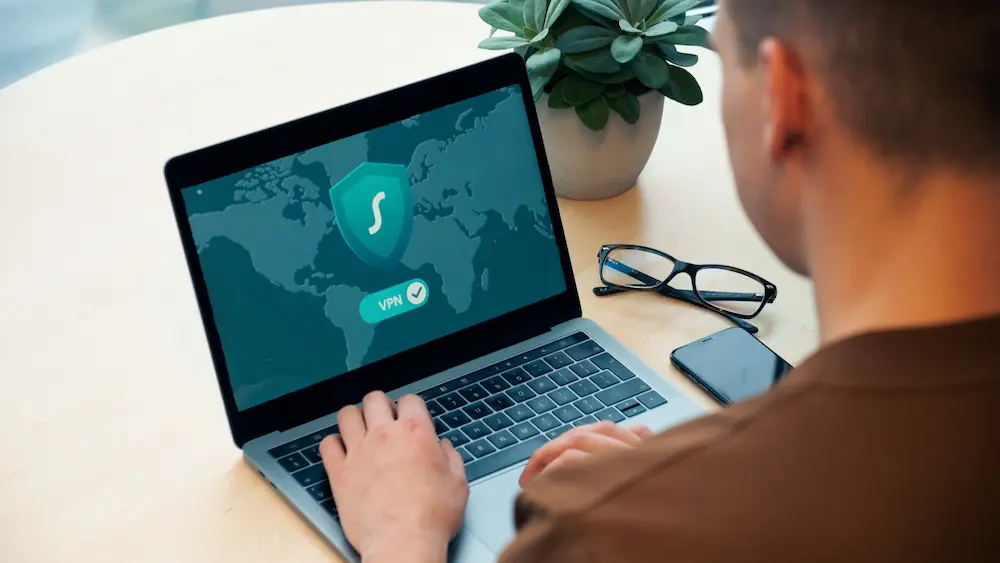In today’s digital world, safeguarding your information from a cyber attack is critical to protect yourself and your data. Cyber security is the practice of defending against attacks on computer systems and networks.
With eight important reasons to consider the importance of cyber security for personal protection, knowing how to secure yourself online can help you safeguard valuable information such as passwords, money, financial accounts, credit card numbers, and more.
In this blog post, we will explore these reasons why it is so vital that everyone keeps their private data secure in an ever-evolving digital landscape.
What is Cyber Security and Why is it Important
Cybersecurity has become increasingly important in our technology-dependent world. Essentially, cybersecurity is the practice of protecting our digital devices, such as computers and smartphones, from malicious attacks.
These attacks can range from stealing sensitive data to causing irreparable damage to essential systems. Cybersecurity ensures that our personal information and sensitive data, such as banking details, are safe from cyber criminals.
With the rise of social media, online banking, and other digital services, it has become more vital than ever to secure ourselves from potential security breaches. Cybersecurity is no longer just an option – it’s a necessity.
Understanding the Different Types of Cyber Attacks
In today’s digital age, it is essential to understand the various types of cyber attacks that can threaten our online safety and security.
Cyber attacks come in various forms, and each one poses a unique threat to our personal information and data.
These attacks can range from phishing scams to malware attacks and can even include sophisticated hacking attempts. By understanding these attacks and learning how to protect yourself from them, you can take proactive steps toward safeguarding your digital information and keeping your online identity secure.
Stay informed, stay vigilant, and keep your guard up against these cyber threats to enjoy a safer online experience.
How To Learn About Cybersecurity
Whether you are a beginner or a more experienced user, there are many ways to learn cyber security and how to protect your personal information online.
You can take a cyber security online course on the basics of cyber security from educational institutions or even through online resources.
Additionally, you can join forums or communities that offer advice and support from professionals in the field of information security.
Finally, it is important to stay up-to-date with news about new cyber threats and understand the latest trends in digital technologies. By learning more about cyber security and staying informed, you will be better prepared for any potential cyber attack or data breach.
How Cyber Security Protects Your Personal Information
Cyber security is key to protecting your personal information. With the right cybersecurity measures in place, you can ensure that your data is safe from malicious attacks and cybercriminals.
This includes using strong passwords, regularly updating software, disabling automatic downloads, and avoiding suspicious links or emails.
Cybersecurity also helps secure online banking transactions and payment services by encrypting sensitive data when it’s transferred across networks. By taking these steps to protect yourself online, you are making a smart move toward safeguarding your valuable data against cyber threats.
Let’s take a closer look at how cybersecurity can help protect your personal information:
Safely Storing Passwords and Protect Your Data
In today’s digital age, online security is more important than ever. With so much personal and sensitive information being stored and shared digitally, it’s crucial to ensure that your passwords and data are protected.
One of the best ways to do this is by securely storing your passwords in a password manager. This way, you can ensure that all of your passwords are unique, complex, and impossible for hackers to guess.
Additionally, it’s important to enable two-factor authentication for all of your online accounts, which will provide an extra layer of protection. By taking steps to protect your passwords and data, you can enjoy the peace of mind that comes with knowing that your online presence is secure.
Using a VPN to Keep Your Browsing Private
A Virtual Private Network (VPN) is another essential tool to keep your online activities safe and secure. A VPN helps protect your data by encrypting it when you’re connected to the internet, which can help reduce the risk of cybercriminals stealing your information.
Additionally, a VPN can hide your IP address, making it more difficult for hackers to track your activity.
By using a good quality VPN service, you can enjoy enhanced security and peace of mind when browsing the web. Keep in mind that not all VPN services are created equal, so make sure to do your research and choose a reliable provider.
Encrypting Your Data to Make it Harder to Hack Into
Data encryption is another powerful tool to safeguard your online data. By encrypting your data, you make it much more difficult for hackers to access or steal your sensitive information.
Most operating systems come with built-in encryption tools that can help keep your data safe and secure.
Additionally, many cloud storage providers offer encryption services to help protect the files stored in their servers. Finally, there are also third-party software solutions available that you can use to further enhance the security of your digital data.
Using a Firewall to Block Unwanted Traffic
Firewalls are an essential tool for keeping your network secure. A firewall is a barrier between your computer and the internet, which can help block unwanted traffic and suspicious activity coming from malicious sources.
Most modern operating systems come with built-in firewalls that you can easily configure to match your security needs. Additionally, many routers also come with custom firewalls that you can use to further protect your devices from cyber threats. Not only do firewalls help keep your network safe, but they can also help improve overall performance and speed.
Regularly Updating Your Software
Finally, it’s important to remember that cybercriminals are constantly evolving and finding new ways to compromise your security.
With new software and applications being developed every day, it is essential to keep them updated regularly. Updating software and applications ensures that they are operating at their optimal level, which can improve performance and security. Ignoring updates could lead to compatibility issues and leave your devices vulnerable to security breaches.
Plus, taking advantage of new features and improvements can enhance your overall user experience.
So, the next time you receive a notification to update your software or application, don’t ignore it. Take a few minutes to update it and reap the benefits.

Your online security is of the utmost importance, and there are several steps you can take to protect yourself from cyber threats. By using strong passwords, enabling two-factor authentication, and encrypting your data, you can keep your information safe and secure. Additionally, using a VPN for browsing, setting up a firewall for your network, and regularly updating your software are all important steps that can help ensure the best possible protection for your digital life. With these tips in mind, you can enjoy the peace of mind that comes with knowing that your online presence is secure.












